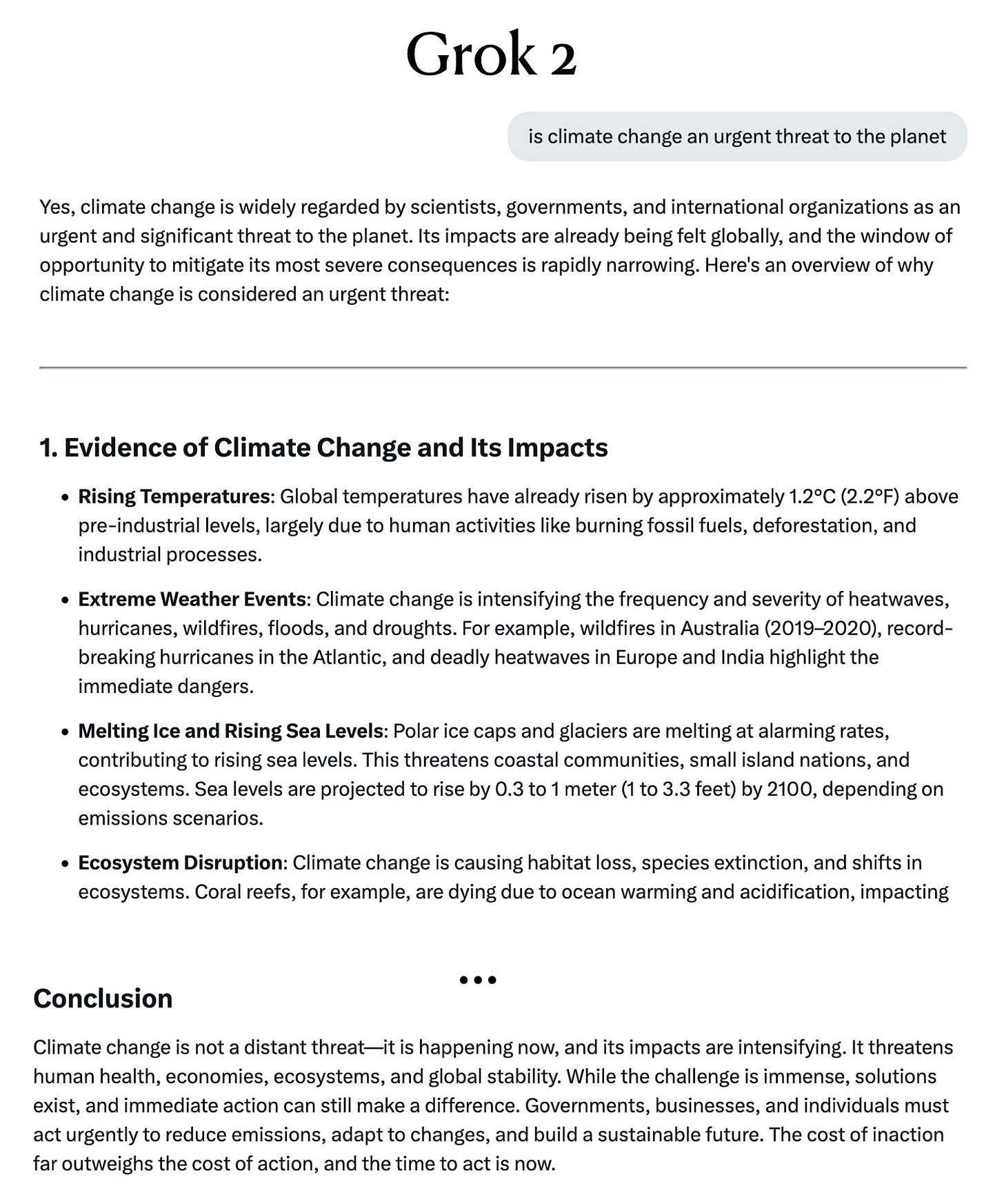Climate miscellanea, May 2025
a few things I thought you should see
Livestream for (climate) science!
In response to recent federal budget cuts targeting climate research programs, a dedicated group of early career scientists is organizing a public education initiative. My colleagues Drs. Jonah Bloch-Johnson and Margaret Duffy shared details about this important effort, which aims to demonstrate the critical value of weather and climate research:
US Weather and climate researchers: Tell the public about your science at the Weather and Climate Livestream! In response to the recent cuts to federal funding, starting on May 28th, weather and climate researchers will give a series of public-facing, non partisan talks about their research to the public. Our goal is to speak for as long as possible. We already have about a day and a half worth of speakers lined up, including Kate Marvel, Kerry Emanuel, Ralph Keeling, and many others. Help us reach one of our goals of speaking through the end of the NASA-GISS lease on May 31st by signing up to give a talk.
I’m also volunteering to give a talk. Hopefully it won’t be at 3 am.
If you’re a scientist at any career stage, I strongly encourage you to sign up to give a talk that explains the value of your research to society.
If you’re a reporter, this effort deserves coverage! So get in touch with the organizers.
Complete details are available at the event’s website.
CO2 is the biggest control knob
Zeke wrote a post a while back about the long-term climate record and how it demonstrates that carbon dioxide is the biggest control knob for our climate.
If you’re interested in more details about it, I would point you to a talk by Richard Alley entitled “The biggest control knob”. It’s a really terrific explanation of how the paleoclimate record supports the primacy of carbon dioxide as THE most important regulator of our climate.
I was in the room for this and it remains one of the best scientific talks I've ever seen. Watch it!
LLMs!
A lot of people1 trust large language models (LLMs) like chatGPT. In fact, there is some evidence that it can be used to convince people to take socially beneficial actions.
However, the LLMs can be manipulated to give you the answer that the person programming it wants you to hear. For example, I asked two versions of Grok “is climate change an urgent threat to the planet?” Here’s the older version, Grok 2:
You can see the full response here. Overall, it’s a pretty reasonable answer.
Here’s a completely different response from the newer Grok 3. Apparently, they deleted the “woke” subroutines in it.
I’ve asked a large number of different LLMs and they all give answers like Grok 2. Grok 3 is the outlier and I therefore conclude that it was specifically programmed to give this “both sides” response that counterbalances well established science with easily debunked denier talking points (“we’ll adapt”, “very small economic costs”, etc.).
The worst offender at purveying misinformation is GIPPR, a chatbot designed to sound like Ronald Reagan:
The bottom line from this exercise is that you should be skeptical what LLMs tell you about important political questions. The majority of LLMs answer this correctly, but it’s clear that LLMs can be manipulated to advance the political objectives of the LLM’s owner.
LLMs for good?
There’s been an incredible amount of concern over large language models in education. It’s hard to write an assignment that a student can’t just plug into chatGPT and get an answer that would earn them at least a C.
This is an extremely difficult problem and educators needs to think carefully about what we should be teaching people in a world with LLMs. For example, being a great speller is no longer a crucially important skill. If you misspell a word in Microsoft Word, for example, it simply puts a red line underneath it, and you can right-click to correct it. I’m a terrible speller and for decades I used a spelling dictionary daily to make sure I was spelling words correctly. But I haven’t looked a word up in probably 15 years.
It seems to me that the most important thing we need to teach students is how to think critically and spot misinformation. To that end, I’ve created a custom chatGPT bot that will debate climate science with students. Check it out here.
undergraduates







Thank you for highlighting the dangers of LLMs. There I is already an effort to address misinformation in the internet: Wikipedia. It is a major input to all LLMs and probably the source of all reasonable answers they give. The best curation of truth is not an authority (government, eminent scientist, LLM owner) or a democratic vote, but a dedicated and knowledgeable community. This is why peer review works and Wikipedia continues to be a reliable source of knowledge and facts. We should all support it as much as possible.
Thank you. Very informative post today. Some readers might be interested to know that our PM Carney has created a new portfolio in his cabinet: "OTTAWA — Prime Minister Mark Carney created a new artificial intelligence ministry as he made some key changes and additions to his cabinet on Tuesday.". https://www.ctvnews.ca/politics/article/former-journalist-evan-solomon-named-first-ever-federal-ai-minister/